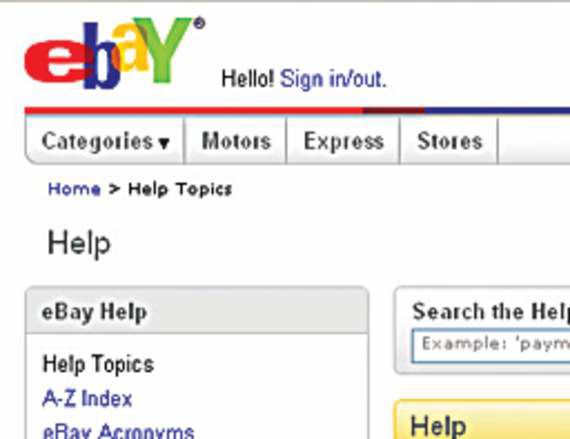EBay 101: How to avoid rip-offs
Published 5:00 am Wednesday, September 10, 2008

- EBay 101: How to avoid rip-offs
For the novice eBay user, the system seems almost too easy. You create an account, you browse countless items and bid on anything you want. You don’t even have to write a check; PayPal keeps all your financial information and will withdraw the money or charge your credit card account as needed.
But before you hit the “place bid” button, how do you know you’re not being ripped off?
On eBay’s help desk, a long list of tips suggests way to ensure you are buying a legitimate item from a scrupulous seller.
The tips, available at http://pages.ebay.com/help/buy/buyer_checklist.html, detail how to research buyers and products. They suggest:
•Learn all you can about an item that is listed in its product description.
•Check the seller’s “feedback,” which shows you what other buyers have to say about that person. A higher rating is better. Sometimes, especially if the seller is a retail merchant, they will have a Web site listed, which is handy for further research. Also, consider how many transactions the seller has: a high number usually means that he or she will stand behind the deal.
•Cross-check your item. Where else is the item sold and for how much? How much are other eBay sellers asking?
•Is the item legal? Some people use online commerce sites to sell stolen items. Certain items have a high probability of having been stolen, such as car faceplates, a couple of hubcaps or a DVD player with no original box or manual. Make sure your products come in original packaging, with all manuals and instructions.
Sometimes, sellers offer warranties or insurance on a product, and eBay has systems in place to make sure their service is fair and friendly.
They warn, for example, against paying in cash or with an instant money transfer. For high-priced items, you can even use an eBay-approved escrow service.
If you are concerned that you won’t receive what you paid for with PayPal, file a PayPal Buyer Protection claim. PayPal also offers reimbursement for certain purchases, as described on pages.ebay.com/help/tp/isgw-buyer-protection-steps.html.
Other options when you think you’ve been had: Immediately file a complaint with eBay Rules and Safety and eBay’s Fraud Protection Program.
You may also want to file a complaint with the Federal Trade Commission (ftc.gov), the Internet Crime Complaint Center (ic3.gov), the U.S. Postal Inspection Service (postalinspectors.uspis.gov), the National Fraud Information Center (fraud.org/info/contactnfic.htm) and the Better Business Bureau (bbb.org).
It also helps to contact your local law-enforcement officials as well as officials in the seller’s town.
Whenever buying or selling something over the Internet, consumers should be extra cautious with their personal information. Internet crooks depend on people not doing their research, not being careful and not following up on threats of action.
New to eBay?
Here are some online tools you may find useful:
•auctionbytes.com, an independent trade publication for online merchants
•eBay’s help desk: http://pages.ebay.com/help/index.html






